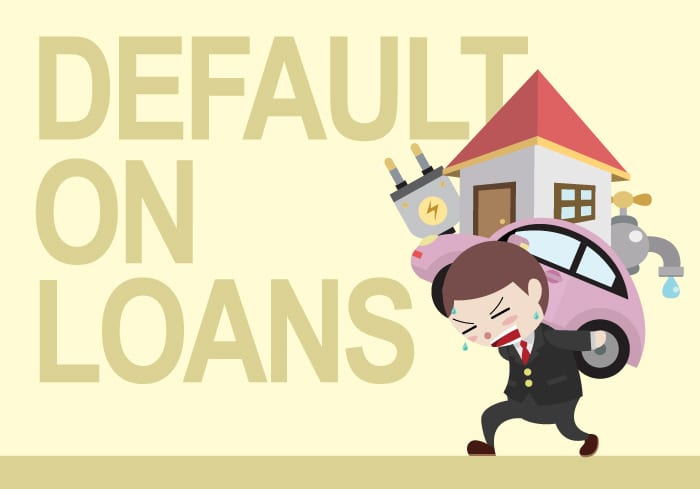

No one knows exactly what will happen if we default. "There is no actual crisis necessitating this manufactured crisis." "Fun Fact," someone wrote on Twitter yesterday. And make us look a bit silly, to put it nicely. The list could go on: Not raising the debt ceiling would force the government to balance its budget overnight, almost certainly creating a new recession ( Goldman Sachs estimates it would lop 4% off of GDP). But when interest rates rise because the market is pricing in credit risk, that comes right out of our pockets. That doesn't necessarily even cost the government more money in real terms. It's a good thing when interest rates rise because the economy is growing faster than before. Two The second reason default is dangerous is the likely rise in interest rates that would follow. Lehman Brothers was well capitalized two days before it was bankrupt. But a credit crisis doesn't need to last long to bring the house down. Credit stops flowing, and as we learned in 2008, that simply devastates the economy.Įven in a default, Treasuries will eventually be repaid - that's a major distinction between now and 2008. I don't want to lend to you because you might hold something bad, or be lending to someone who is holding something bad, or be lending to someone who is lending to someone who is holding something bad.

When you remove trust, people hide now and ask questions later. If the global financial system is built on credit, it is supported by trust. Those holding bad mortgage debt fared the worst in 2008, but financial pain spread throughout the entire financial system, and to areas that had nothing to do with real estate. This is, effectively, what occurred in 2008, just with mortgage bonds rather than Treasuries. Multiply this scenario by a few trillion, and you can imagine it wouldn't be very pleasant. "Well, holy cripes," was all Wells Fargo chief fixed-income strategist James Kochan could say when asked about Treasuries being pushed from the collateral market. And around we go - until the credit market grinds to a halt, and you have an utter disaster on your hands. But your banker's assets are in Treasuries, too. If you have nothing else to sell, the banker gets into trouble. That means your banker comes knocking, forcing you to sell, say, your stocks, or your house. But it means you can't repay your $1 loan on time. Maybe it's only in default for a day or a week. But then, the government decides to default. You'll repay the $1 loan with cash you receive when your $1 of Treasuries are paid off by the U.S. Imagine you took out a $1 loan backed by $1 of Treasuries. According to Bloomberg, at least $2.8 trillion in Treasuries act as collateral in short-term lending markets. They are basically the cornerstone of the global financial system. Lenders prefer safe collateral, and Treasuries are considered the gold-standard, "risk-free" asset. One The global financial system is built on credit. But more serious investors are asking what was once an unthinkable question: What would happen if America defaulted on its debt? The odds are still overwhelming that the debt ceiling will be raised and default avoided.

Even immensely profitable companies utilize debt to bridge short-term cash-flow gaps. This has little to do with deficits and lots to do with day-to-day cash-flow mechanics. With reserves dried up and faced with an interest payment in excess of daily revenue, the country could indeed be forced to default if barred from borrowing more. And there are plenty of days when the Treasury takes in far less than $10 billion in tax revenue. But this misses the point that what matters is day-to-day cash flow. Some say, no problem: The Treasury still brings in enough cash per year and per month to pay interest on the debt. That makes defaulting on our debt frighteningly real. According to the Bipartisan Policy Center, the Treasury will owe a $6 billion debt interest payment on October 31, $43 billion in Social Security and Medicare payments on November 1, and $29 billion in interest due on November 15. Unless Congress lifts the nation's self-imposed debt ceiling, the Treasury will have less than $30 billion cash on hand on October 17, which will be wiped out quickly. For most Americans, it's a mere annoyance.īut that could change in the coming weeks. Still no end in sight.įor 800,000 or so furloughed federal employees, this is tough.


 0 kommentar(er)
0 kommentar(er)
